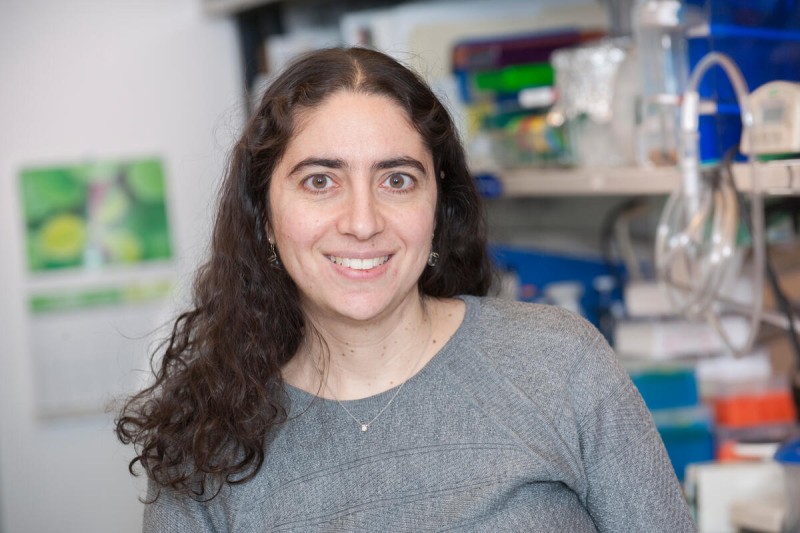
The US Food and Drug Administration has granted accelerated approval for the targeted therapy adagrasib (Krazati®) in combination with the drug cetuximab (Erbitux®) for people with advanced colorectal cancer caused by a gene mutation called KRAS-G12C.
Adagrasib is the first KRAS-targeting drug to be approved for colorectal cancer. It and another drug, sotorasib (Lumakras®), were already approved for treating lung cancer with the mutation KRAS-G12C.
“Since we started this trial, I have had people coming to me from all over to receive this treatment,” says Memorial Sloan Kettering Cancer Center (MSK) gastrointestinal medical oncologist and early drug development specialist Rona Yaeger, MD. “Now that this drug combination is approved, many more patients will be able to benefit.”
A New Drug Combination for Treating People With G12C Advanced Colorectal Cancer
The latest results of the adagrasib trial led by Dr. Yaeger, called KRYSTAL-1, were published in the June 2024 issue of Cancer Discovery. Dr. Yaeger was the lead author of that paper.
The investigators described results from 94 patients treated around the United States. All the patients had advanced colorectal cancer that had spread to other areas in the body and could not be surgically removed.
These patients had a specific tumor mutation in the KRAS (pronounced “kay-rass”) gene called G12C. Everyone in the trial had previously received other treatments for their colorectal cancer that had stopped working.
The Cancer Discovery paper reported:
- In more than 85% of patients, the tumors stop growing. In 34% of trial participants, the tumors shrunk.
- The average length of time the treatment showed results was nearly 7 months, and the average survival after beginning treatment was about 16 months.
- Adagrasib is taken in pill form twice a day. Patients receive cetuximab, which is given as an infusion, every two weeks.
- The most common side effects were gastrointestinal problems (nausea, vomiting, and diarrhea) and rashes. About one-third of patients had to have their doses reduced because of those side effects.
The combination of adagrasib and cetuximab for treating colorectal cancer had previously received Breakthrough Therapy Designation from the FDA. That designation was based the findings reported in a paper that Dr. Yaeger led, published in The New England Journal of Medicine (NEJM) in December 2022.
About 4% of all colorectal cancers have the KRAS-G12C mutation. It can be detected with tumor-sequencing tests like MSK-IMPACT®.
How Scientists Target the G12C KRAS Gene in Colorectal Cancer
Mutations in the KRAS gene — one of the first cancer genes ever identified — are most commonly found in colorectal cancer, pancreatic cancer, and lung cancer. But despite four decades of research, scientists could not figure out how to block its activity. They called the KRAS mutation “undruggable.”
But finally, sotorasib — a drug similar to adagrasib — was proven effective for a subset of people with lung cancer who have a specific KRAS mutation called KRAS-G12C. MSK thoracic oncologist and early drug development specialist Bob Li, MD, PhD, MPH, helped lead the development of sotorasib. MSK thoracic oncologist Gregory Riely, MD, PhD, was one of the leaders in developing adagrasib for lung cancer.
MSK researchers have worked to find ways to target the KRAS protein for many years. Much of the early research on blocking it was done by Neal Rosen, MD, PhD, and Piro Lito, MD, PhD. They helped determine how drugs were able to bind to the KRAS protein and trap it in an inactive state, which in turn prevented the protein from triggering the growth of cancer cells.
Developing KRAS-targeting drugs for treating colorectal cancer has been more difficult than it was for lung cancer. For several years, Dr. Yaeger has worked with molecular biologist Sandra Misale, PhD, a scientist in Dr. Rosen’s lab, which is part of the Molecular Pharmacology Program in the Sloan Kettering Institute.
They have been studying how to make these drugs more effective, often by combining drugs that take aim at two different genetic targets at the same time. This double-barreled approach inspired the current treatment: combining adagrasib with cetuximab, an older drug that blocks a cancer-causing protein called EGFR.
How MSK Is Trying To Prevent Drug Resistance From Developing
In another paper, published in the January 2023 issue of Cancer Discovery, Drs. Yaeger and Misale reported more details on how resistance to the combination of adagrasib and cetuximab develops in colorectal cancer. Their research used animal models and cell cultures. They also analyzed samples collected from many of the patients who participated in clinical trials with adagrasib or sotorasib.
“Everyone knows that when you use targeted drugs, patients almost always develop secondary resistance,” Dr. Misale says. “We started studying this even before the treatment had been given to patients.”
Their research revealed several ways that resistance can develop. One of the most common is that the gene fo KRAS-G12C becomes amplified, causing it to produce more of the protein than the drug is able to block. “Based on these findings, we have ideas for potential future approaches,” Dr. Misale says.

